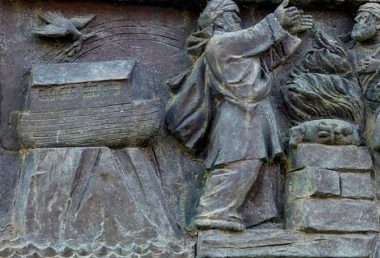
ב''ה
 Subscribe to our
Subscribe to ourQuestion: I have felt an interest in bringing burnt offerings, but I was told by a Noahide that it’s about sacrificing our animal desires. I’m not sure if that’s true, but it lines up with my personal struggles.
Answer: Definitely, the Divine service of self-sacrificing our sinful desires is the moral lesson that we should learn from the Torah’s permission for Gentiles to make burnt offerings of kosher livestock to G-d, if it is not forbidden by the law of the land. That lesson applies not only to desires for things that are actually sinful, but also to desires for things that are known to be displeasing to G-d, because such things don’t befit a person who is seeking to draw closer to G-d with faith, love and awe, as the concept of a sacrifice implies.
The pre-Mosaic spiritual leaders whom the Torah speaks of as bringing burnt offerings to G-d – Noah, Abraham, Isaac and Jacob – were exceedingly righteous individuals who had already accomplished great things in one of their main missions in life: to completely sacrifice and obliterate unrighteous desires from their own existence. After having accomplished that, their actual burnt offerings were indeed pure and holy and desirable to G-d. But in the lowly spiritual state of the world in our time, how could a Gentile possibly expect to bring about a similar spiritual accomplishment through a Divine service that is relevant today?
The Talmud provides the answer, by teaching that the charity that is given by Gentiles is counted for them by G-d as spiritually equivalent to sacrificial offerings. Simply put, the person is sacrificing whatever he could have bought for himself with that money, and he is using it to do the good, kind deed of giving support to a fellow human being who is in need. (Of course, we are talking about charity money that was honestly gained and is not given to support forbidden activities.)
May G-d help you with your personal struggles. And may you be strengthened in the knowledge that in regard to the things which G-d is actually demanding of a person, from the outset He endows that person with the strength that will be needed. “All” the person needs to do is find that endowed strength within himself.
